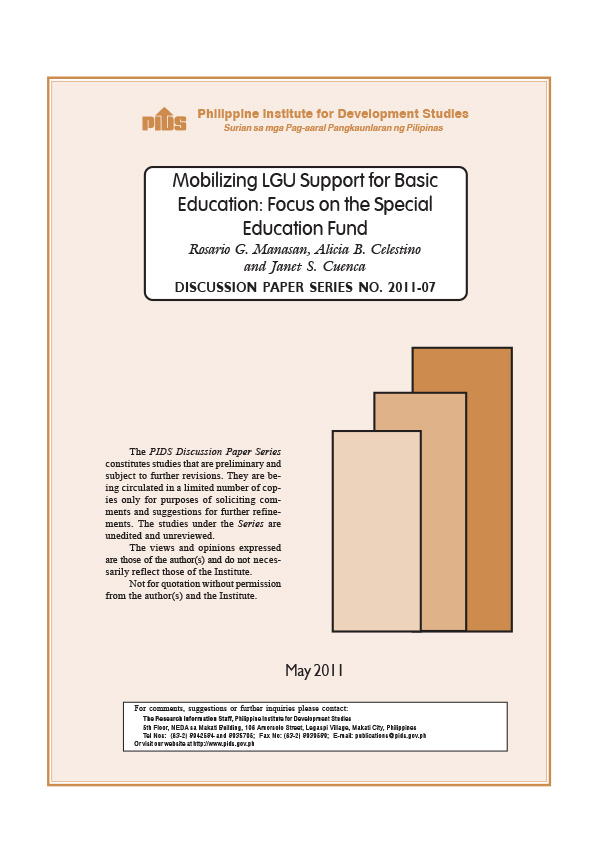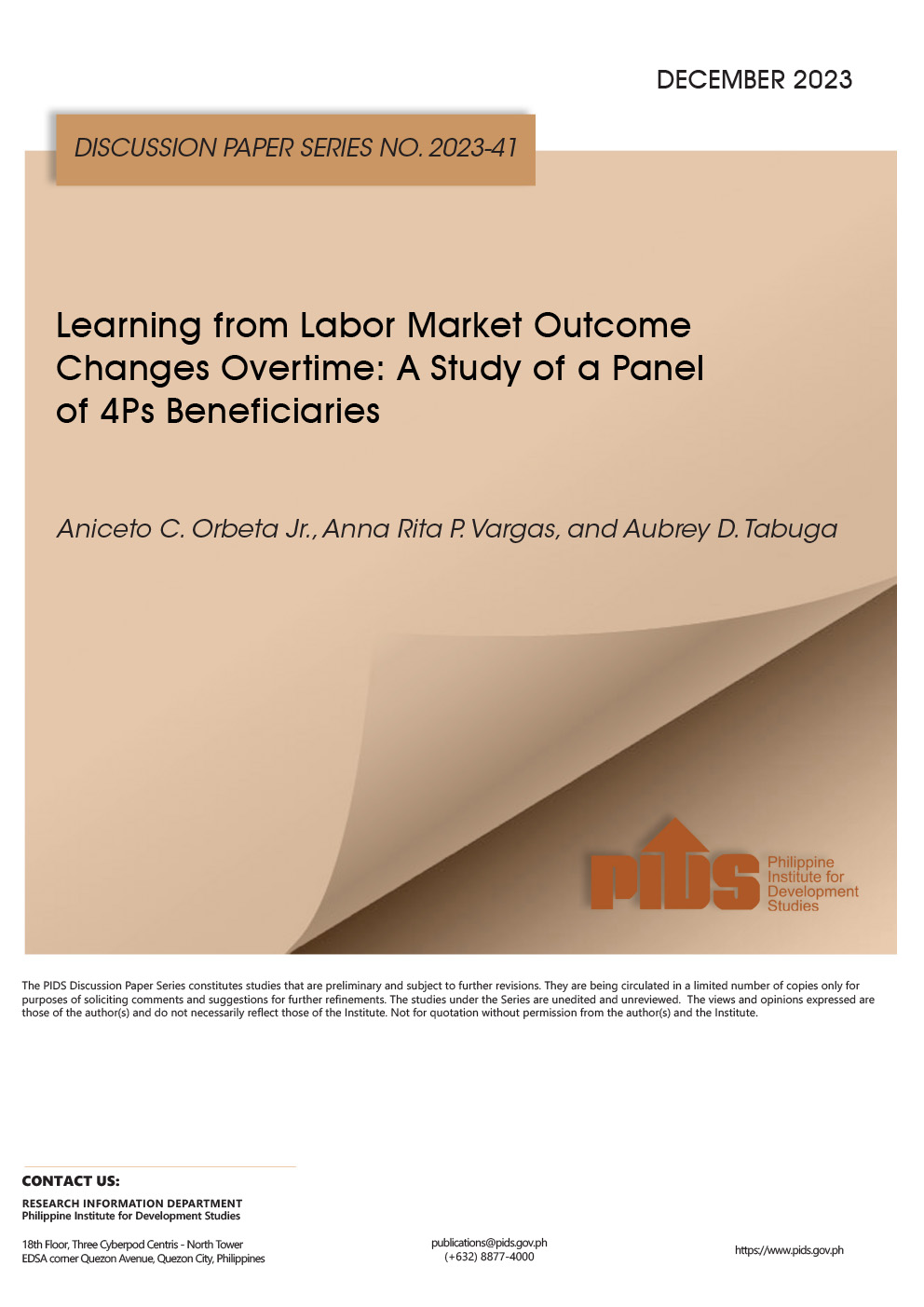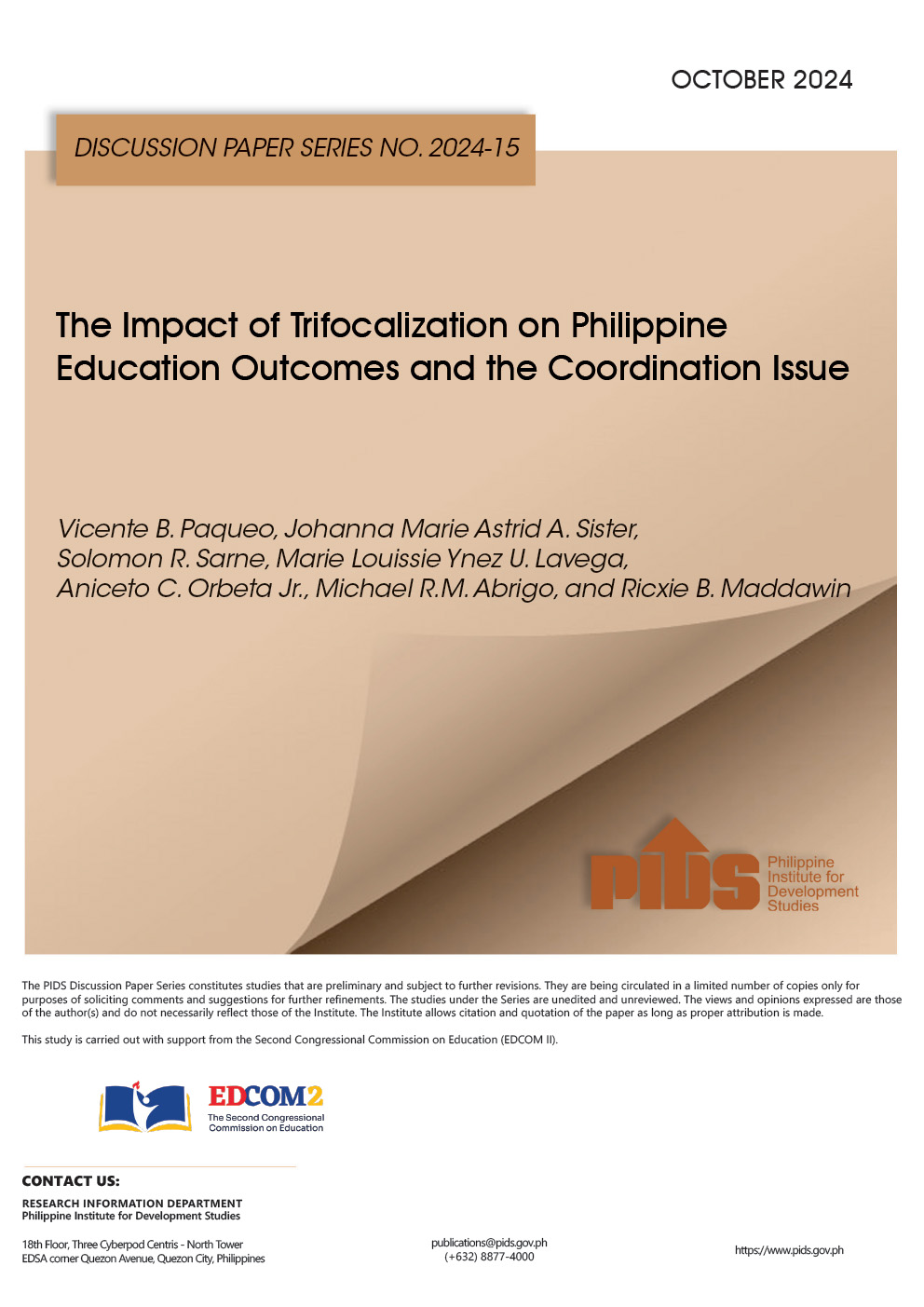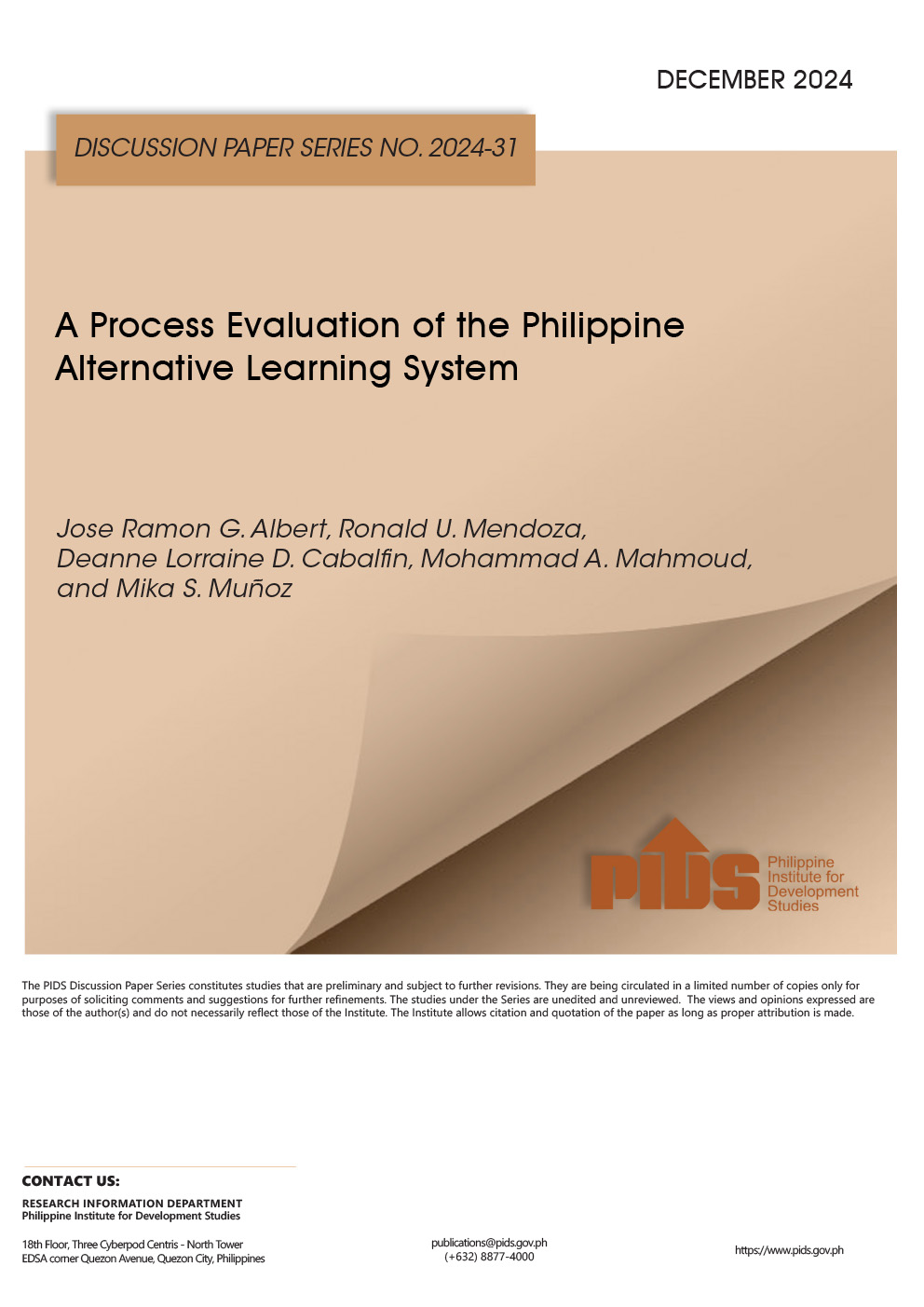Basic public education is still largely the responsibility of the central government, delivered through the Department of Education (DepEd), notwithstanding the devolution of many basic services to local government units (LGUs). However, LGUs do provide supplementary funding support to public basic education because they have access to a sustainable source of financial resources that are earmarked for the basic education subsector, the Special Education Fund (SEF). The SEF comes from an additional one percent tax on real property that LGUs are mandated to impose and collect by virtue of Republic Act 7160 otherwise known as the Local Government Code of 1991.The resources that LGUs provide to the basic education sector from their general fund are quite significant at 7 percent of total general government spending on basic education in 2001-2008. Thus, the LGUs are considered major partners of the national government in the delivery of basic education services. In this light, the study examines the management of the SEF in terms of collection, allocation, and utilization in order to maximize LGUs` support for the Education for All (EFA) initiative and to promote a more equitable allocation of resources for basic education.However, there are significant disparities in per pupil SEF spending across LGUs of different income classes and in different regions. LGUs in urban areas (i.e., cities and the large municipalities) where property values are high tend to have larger tax bases. These disparities have significant implications on the ability of the LGUs to provide additional support to the basic education sector.In terms of spending priorities, some of the major findings of the study include: (i) maintenance and other operating expenditures captured the biggest chunk of the total SEF spending of all LGUs in the aggregate (40%) while capital outlays and personal services garnered an average of 32 percent and 29 percent of LGUs total SEF spending in 2001-2008; (ii) repair/maintenance and construction of school buildings tops the list of SEF spending priorities in the sample Provincial School Boards (PSBs) and the sample City School Boards (CSBs); and (iii) relatively large portions (20%-50%) of the SEF are set aside for sports and other co-curricular activities and programs of the DepEd.The findings of the study highlight the need to improve the governance of Local School Boards (LSBs). Related to this, the measures proposed include: (i) clearer guidelines on preparation of the LSB budget, (ii) the establishment of needs-based criteria in allocating SEF across schools to ensure its efficient and effective use, and (iii) institutionalization of greater transparency between DepEd and LGUs in terms of reporting of resources that schools receive from the DepEd budget, on the one hand, and actual SEF collections and its utilization during the budget year, on the other hand, in order to foster better working relationship in the LSB.
Citations
This publication has been cited 3 times
- Albert, Jose Ramon G. and Clarissa C. David. 2012. Primary education: Barriers to entry and bottlenecks to completion. Discussion Papers DP 2012-07. Philippine Institute for Development Studies.
- Leal, Rosalie C. 2020. Local government unit basic services: Implementation and assessment. GATR Journals gjbssr556. Global Academy of Training and Research (GATR) Enterprise.
- World Bank. 2013. Basic education public expenditure review phase II : School based management in the Philippines, an empirical investigation. World Bank Publications - Reports 16076. The World Bank Group.













